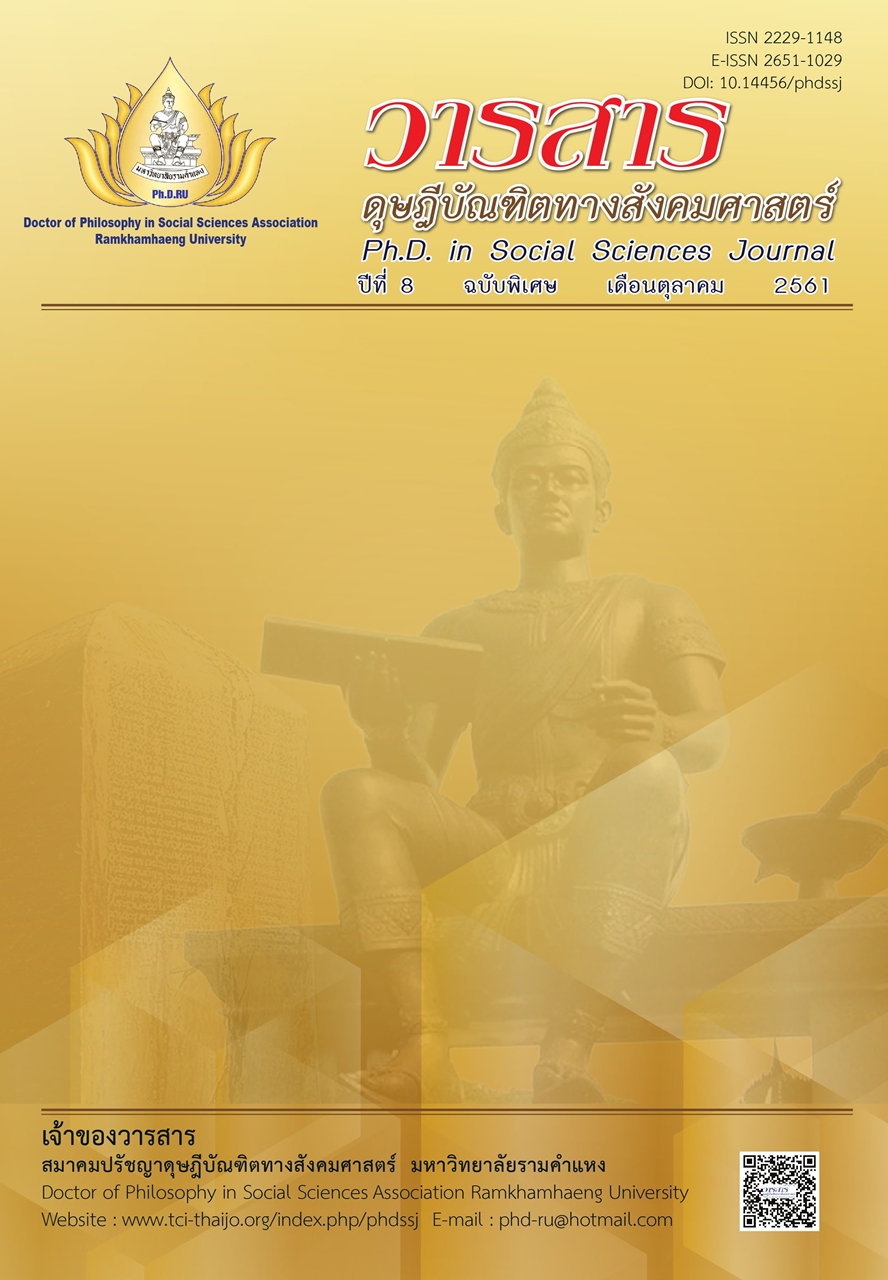Enhancing Social Behavior Development in Early Childhood through Toy Creating Intervention
Main Article Content
Abstract
The research design was quasi – experimental has the aim as follow; 1) To assess the child development 2. To compare the social behavior of children before and after having the toy creating intervention. The Sample of this research are early childhood at the age of 4-5, who were studying in the second-year kindergarten in 2015 who underwent Denver II developmental screening test and were found presenting developmental delays with a total of 5 children. Data were collected and analyzed by using statistical Wilcoxon signed rank test. The research instruments included 1) the general information of the participants, both of children and of their parents; 2) SDQ (Strength and Difficulties Questionnaire); 3) The 24 toy creating activities designed by the researcher; and 4) researcher’s note about the participants’ behavior during the activities. Each activity took 40 minutes and was conducted 3 days in a week, for 8 weeks.
Results showed that
1. Early Childhood Development Assessment Mostly suitable for ages, there are only 7 people with delays. Statistically significant Factors that affect development include maternal factors such as age to Get Pregnancy, education, occupation, antenatal care, and childbirth. Child factor such as birth weight, Iron supplementation, Perinatal Hypoxia levels at 1 and 5 minutes, children with postpartum complications, and congenital diseases.
2. Comparison of social behavior in early childhood before and after the toy creating intervention. The teachers’ assessment was found that statistically significant at the .05 level. (Mean score before activity ( = 6.60, SD = 2.30) and mean score after activity (
= 8.20, SD = 1.64) and relationship problems with early childhood friends (Mean score before activity was (
= 3.20, SD = 1.79) and mean score after activity (
= 2.00, SD = 1.00)
Article Details
Academic articles, research articles, and book reviews in the Ph.D. in Social Sciences Journal are author’s opinions, and not the publisher’s, and is not the responsibility of the Ph.D. in Social Sciences Journal Philosophy Association, Ramkhamhaeng University. (In the case that research is done on human, the researcher has to be trained in Ethics for Doing Research on Human Training and has to produce the evidence of the training).
References
Department of Health Ministry of Public Health. (2015). The situation of childhood development in Thailand. Retrieved January 31, 2018, from https://hpc03.files.wordpress.com/2015/09/full-paper-childdev.pdf [In Thai]
Faulkner, D. (1995). Play, self, and social world. In P. Barnes (Ed.), Personal, social and emotional development of children (pp.249-70). Oxford, England: The Open University Press.
Goldstein, J. (2012). Play and technology. In A. D. Pellegrini (Ed.), Oxford handbook of the development of play. Oxford, England: Oxford University Press.
Institute for Population and Social Research, Mahidol University. (2015). The development project in monitoring a physical activity of Thai population 2015. Nakorn Pathom: Author. [In Thai]
Chan-Ame, S. (2000). Child psychology (4th ed.). Bangkok: Thai Wattana Panich. [In Thai]
Santanon. J. (2010). The development of social relations of young children’s drawing with collage picture activities in group. Master’s thesis early childhood education, Srinakharinwirot University. [In Thai]
Keawkungwal, S. (2010). The psychology of life development (9th ed.). Bangkok: Thammasat University Press. [In Thai]
Khemmani, T. (2012). Teaching technique: Knowledge for effective learning process (15th ed.). Bangkok: Chulalongkorn University Press. [In Thai]
McFarland, A. (2011). Growing minds: The relationship between parental attitude about nature and the development of fine and gross motor skills in children. Retrieved January 31, 2018, from https://hdl.handle.net/1969.1/ETD -TAMU-2011-05-9067
Sokampa, A. (2008). Social behavior of preschool children affected by Esop story telling with simulation. Master’s thesis early childhood education. Srinakharinwirot University. [In Thai]
Sukhothaithammatirat Open University. (1989). Document training series for teacher and early childhood caregiver unit 6-10. Nonthaburi: Sukhothaithammatirat Open University Press. [In Thai]
Tantiphlachiva K. (2004). Learning activities for early childhood. Bangkok: Srinakharinwirot University Press. [In Thai]


